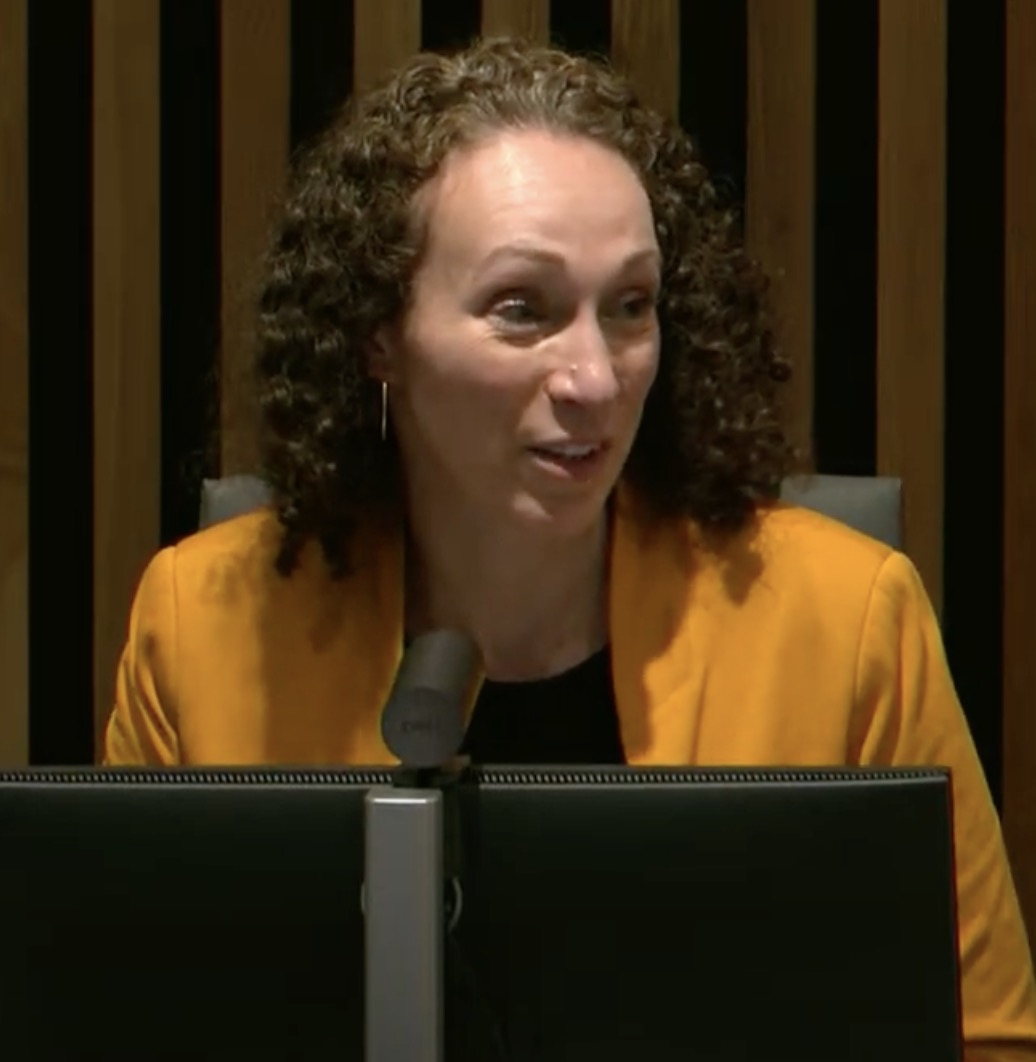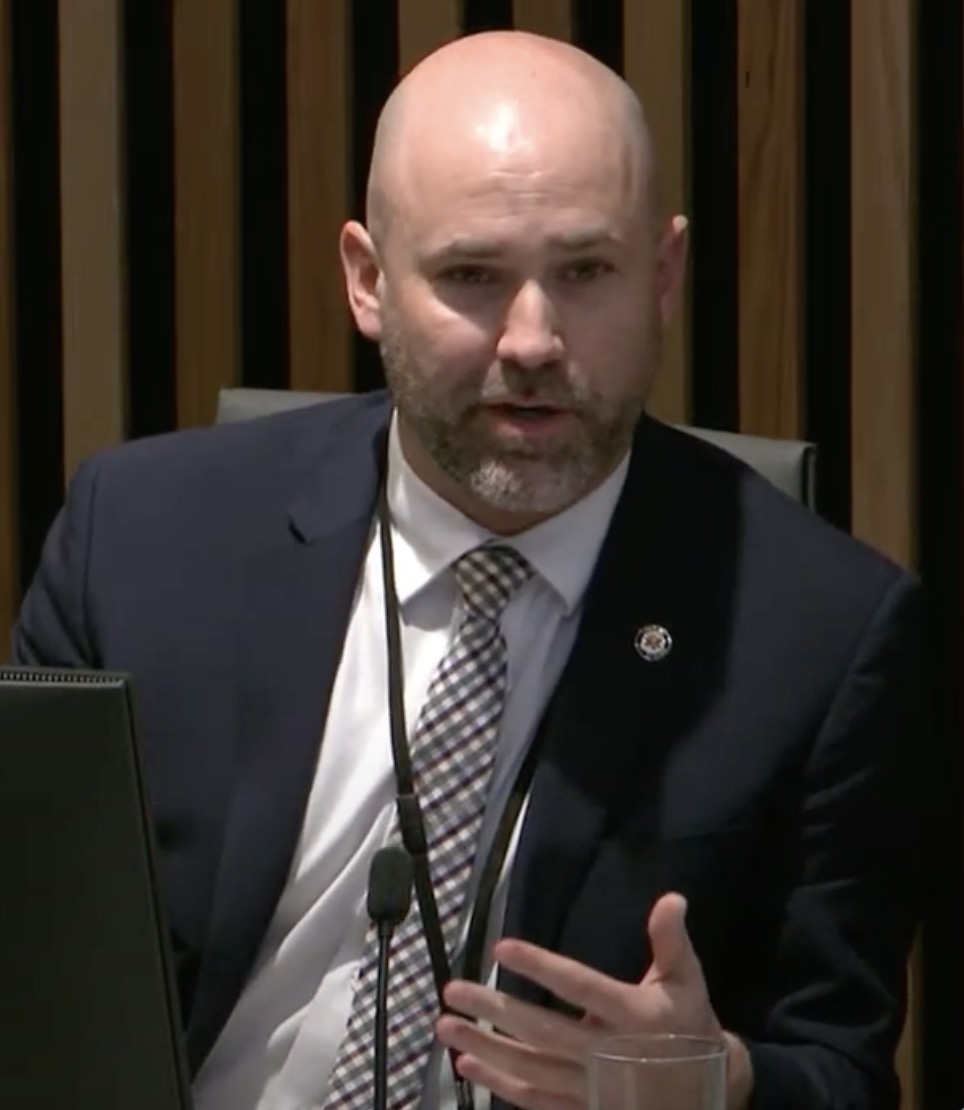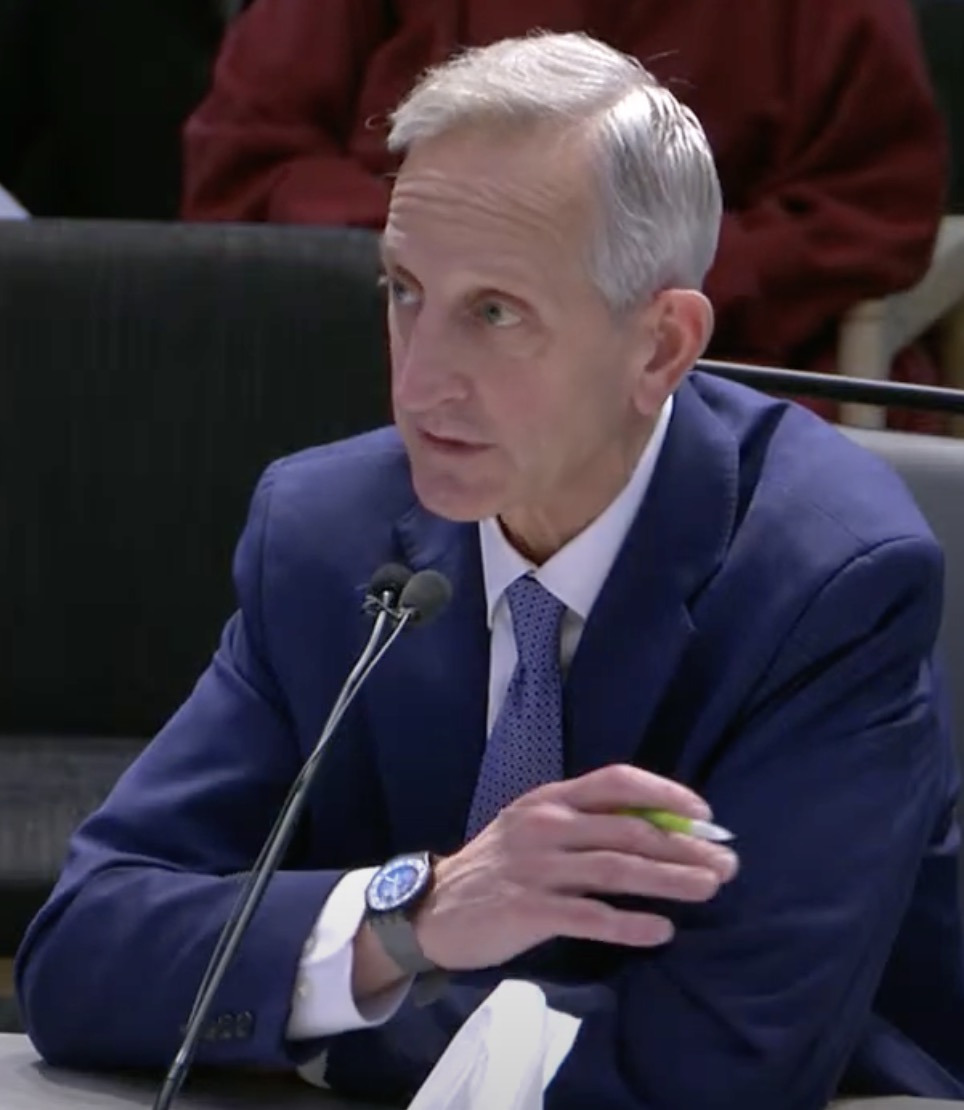Sure I took some liberties with that headline, however I promise it’s correct.
Thursday was the primary ever assembly of Portland’s new, 12-member Metropolis Council. Whereas all of the eyes and headlines have been on the final assembly the place councilors elected their president and vice chairman after 9 rounds of voting, I discovered an fascinating trade that occurred in a subsequent work session to be simply as notable.
First issues first.
The primary day on the job for the brand new council and Mayor Keith Wilson was fascinating. Seeing the 12 elected officers seated in an arc contained in the reworked Metropolis Corridor, proper below the seal of town, made the adjustments to our type of authorities very tangible. And when Mayor Wilson lastly joined the assembly as a visitor — sitting in the identical seats used for public and invited testimony as an alternative of as an equal to council members — was a placing distinction to the outdated method of doing enterprise.
“Once you say, ‘It doesn’t make sense that we’re placing 1,000,000 {dollars} into this bike lane,’ and it doesn’t make sense to you and your neighbors — you now have voice to deliver that concept ahead.”
– Keith Wilson, mayor

Having the mayor seated under council is a logo of this new council’s independence. Throughout the vote for council president, there was a debate about whether or not or not the mayor ought to have the ability to forged a tiebreaker vote. Council finally sided with Metropolis Legal professional Robert Taylor (and towards Councilor Loretta Smith) in protecting the mayor out of it. This set a precedent going ahead that the mayor’s tiebreaker is barely meant for legislative points like passing ordinances and adopting coverage paperwork, and that council administration will stay solely in council’s fingers.
And that may very well be an fascinating precedent. As a result of with 12 members of council, we may very well be in for lots of tie votes. Yesterday’s 6-6 impasse was first between Councilor Candace Avalos (D1) and Councilor Olivia Clark (D4). This gave us our first view of what may very well be future blocs of progressive (for Avalos) and extra centrist/average council members (for Clark). Then after a number of 6-6 votes, Councilor Elana Pirtle-Guiney (D2) was thrown into them combine and she or he ultimately earned all of the Clark votes. New candidate, similar tie. The impasse was solely damaged when Councilor Mitch Inexperienced (D4) switched his vote from Avalos to Pirtle-Guiney. It was an enormous shock, given Inexperienced’s progressive credentials (he’s backed by the Democratic Socialists of America) and the truth that he’s the one who initially nominated Avalos for the put up. (For a blow-by-blow recap of the vote and assembly, with quotes from Inexperienced and different councilors, browse my thread on Bluesky.)
From what I’ve gathered, Pirtle-Guiney is well liked by of us on all ends of the political spectrum and is seen as a compromise between Avalos and Clark (Clark herself referred to Pirtle-Guiney as a “potential compromise” in my interview along with her earlier than the vacation break). Pirtle-Guiney is a political insider with deep roots within the labor motion and was a prime aide to former Oregon Governor Kate Brown. Pirtle-Guiney could have former schoolteacher Councilor Tiffany Koyama Lane (D3) by her facet as council vice chairman (Koyama Lane gained as the only real nominee with a unanimous vote). These are new roles in Portland metropolis authorities, so their influence and affect are nonetheless unknown.
Whereas there was loads to glean about councilors’ feedback and actions at that marathon first assembly, I need to share a notable trade from a piece session with Mayor Keith Wilson held simply after it.


The work session was ostensibly an opportunity for Wilson to replace council on his work to arrange winter shelters for individuals who stay on the streets. Nevertheless it was additionally an opportunity for the 12 councilors to handle him publicly as members of metropolis council for the primary time. District 4 (westside and Sellwood) Councilor Eric Zimmerman used the chance to plant a flag within the mayor’s thoughts about native management. Or put one other method, defending his turf (district) from metropolis businesses. Zimmerman made it clear he desires a district perspective on all selections and I’m sharing this right here right now as a result of he particularly talked about implementation of “pedestrian kind plazas” and “sure lanes or visitors adjustments.”
And what made this trade much more fascinating to me is how Mayor Wilson responded.
Zimmerman mentioned he desires district leaders to have sway over how metropolis tasks and plans are carried out “on the bottom.” “I’m not so occupied with park improvement occurring in precisely the identical in each single neighborhood, or how public plazas occur throughout town. I feel every geographic space has a say in what works, what their wants are, what they’re occupied with,” he mentioned. “And that gained’t occur except we pressure the difficulty from a management standpoint, that the bureaus perceive that there’s a district perspective, and there are nice issues which have labored in in my district that haven’t labored in others, and vice versa.”
Then to flesh out his level, Zimmerman talked about particularly, “some public plazas or pedestrian kind plazas in downtown,” and “sure lanes or visitors adjustments.” He made it clear he sees his function as councilor to “with the ability to transfer and alter these barely.” “We need to hear from the [city] bureau, however we additionally need to be certain it is sensible particularly for that space.”
“My constituents and I personally really feel that an excessive amount of has been one-size-fits-all within the Metropolis of Portland for a technology… and my assist will likely be a lot simpler to get for every part we do if I do know that there’s a lens for the district perspective on every part we do.”
Be aware that Zimmerman additionally talked about how he’s dedicated to partnering on this method with council members from District 1 (east).
I’ll attempt to study extra about what tasks and/or insurance policies impressed these feedback from Zimmerman. Nevertheless it sounded comparatively clear to me he’s considering particularly concerning the Portland Bureau of Transportation (PBOT) and his remarks got here from a way of concern that some forms of highway designs and lane configurations which can be used within the central metropolis and inside neighborhoods, won’t make sense in further-out locations. Was he enthusiastic about highway diets in east Portland and bus precedence lanes in southwest? Will Zimmerman carry the voices we’ve heard from some Portlanders who oppose tasks that make main adjustments to how lanes and public right-of-way are used?
What additional raised my eyebrows was Mayor Wilson’s response. Although Zimmerman mentioned nothing about bicycles, that’s what Wilson heard.
“To your final level about having maybe a motorbike boulevard in a neighborhood,” Wilson replied. “Once you say, ‘It doesn’t make sense that we’re placing 1,000,000 {dollars} into this bike lane,’ and it doesn’t make sense to you and your neighbors — you now have voice to deliver that concept ahead. And what I commit to each one among you is: if it is sensible, if we expect sluggish, have a look at the information, speak to the neighbors, discover out completely different finest practices, we cease, we pivot, and we act quick upon a change. That’s one factor I’m actually trying ahead to.”
It’s fascinating to me how Wilson heard considerations about plazas and “sure lanes or visitors adjustments” and his thoughts instantly went to being against a motorbike boulevard.
If that’s what Zimmerman was enthusiastic about, how will he signify voices from his district to foyer for adjustments to PBOT tasks? Will council members from completely different districts align collectively to push for giant adjustments in transportation? If that’s the case, will they push us ahead or backward?
With only one assembly below our belts, it’s laborious to know. However think about me intrigued.
































